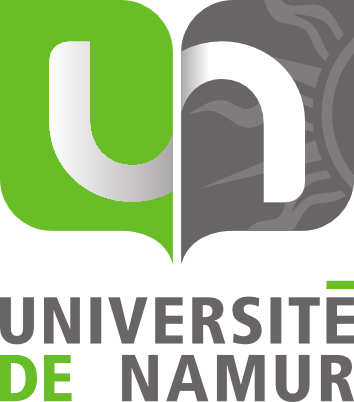événement
Défense de thèse - Citizen Participation in Smart Cities: Facilitating Access through Awareness, Open Government Data, and Public Displays
Défense d'Antoine Clarinval
Catégorie :
défense de thèse
Date : 28/10/2021 16:00 - 28/10/2021 18:00
Lieu : PA01
Orateur(s) : Antoine Clarinval
Organisateur(s) : Isabelle Daelman
Date : 28/10/2021 16:00 - 28/10/2021 18:00
Lieu : PA01
Orateur(s) : Antoine Clarinval
Organisateur(s) : Isabelle Daelman
In an effort
to involve citizens in decision-making, more and
more governments at various levels of power around the world are implementing citizen participation initiatives. Their objective is to reach decisions that are more in line with the reality of citizens and that are therefore better accepted. Citizen participation also aims to reconnect
citizens with their governments, as citizens’ trust toward them has reached particularly low levels in recent years. Furthermore, the emergence of new technologies and their use
in city management, driven
by the smart
city movement, has opened
new ways of reconnecting with citizens, and has therefore contributed to the recent
hype for citizen participation.
Full of promise, the road to participation however is littered with barriers, which result in citizen access to participation not reaching its full potential. On the public servants side, the main barriers are the lack of expertise and resources to properly implement citizen participation initiatives and measure their impact, and the re- luctance to hand over some of their power. On the citizens’ side, there are also a number of hindering factors, such as lack of interest in participation, constraints related to personal life, and the lack of expertise or information.
New technologies offer ways to reduce these barriers
to citizen
participation. This is the objective of this thesis, which aims
to provide solutions
and recommenda- tions to help reduce barriers to participation, with a focus
on barriers on the citizen’s side. Specifically, this thesis focuses on three barriers that were selected from a litera- ture review and due to their particular
relevance to the context
of Wallonia (Belgium). The first is the lack of awareness
of participation in smart
cities. The second
is the difficulty of accessing
usable data needed to understand the topic on which citizens are asked
to participate. The third is the barrier
of entry to participation methods, which makes
it difficult to attract
citizens who are not already involved.
Since each of these barriers covers a specific
aspect of access to participation, they were studied independently. As for the first barrier, the focus was on rais- ing awareness of citizen
participation in smart
cities among children aged 12-14. A workshop adapted to the school context was therefore developed, and its im- pact was evaluated with
299 children through 15 sessions. The workshop conduct was thoroughly documented to allow teachers to organize it with their students autonomously.
Concerning the second barrier, the starting point
was Open Gov- ernment Data (OGD), which is a rich data source made available to citizens via online portals. Since these portals
are under-used
in practice, a requirement anal- ysis was conducted to understand what citizens expect from these portals.
One of their requirements, namely to have data visualizations along with
the datasets, led to the development of a guide for developers to choose
the best mobility data representations. Interface design recommendations
for developers and data pub- lishers were also formulated to allow the development of portals that are more adapted to citizens’ expectations. Finally, regarding the third barrier, this thesis has focused on public displays and on how they can be used as a citizen
participation method. The strength of public displays is that they are directly integrated
into the urban landscape, and therefore free from the entry barriers
that commonly used methods have. In order to encourage the adoption of this device, which is rarely used in practice, an analysis
of the existing literature was carried out to highlight successful
experiments conducted with public
displays and their results. On this basis, several research perspectives were also opened
to reinforce the usefulness of public displays as a participation method. First, citizens’ expectations on their involvement
in the development of services
such as public displays
were collected. Second, a process model
was developed
to help developers
design adaptive public displays that can encourage interaction
by adapting
to changes in their environment.
Keywords: smart city, citizen participation, barriers, education, Open Govern- ment Data, public display
Contact :
Isabelle Daelman
-
4966
-
isabelle.daelman@unamur.be
Télecharger :
vCal
